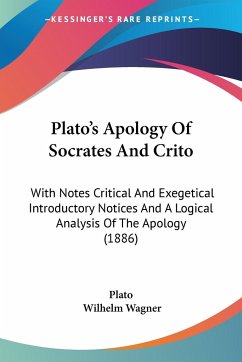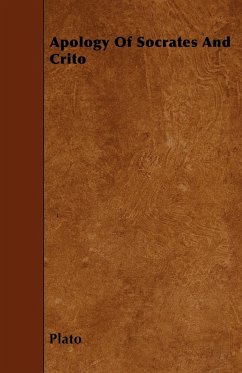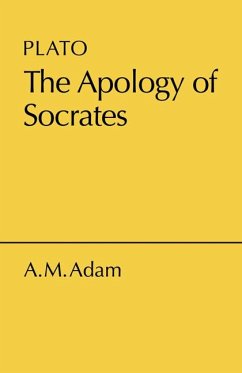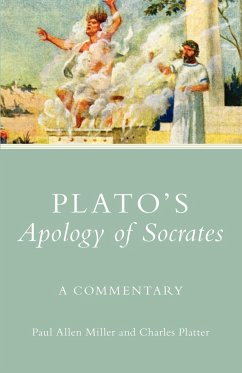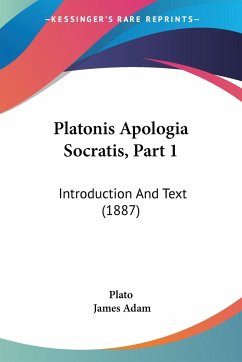
Platonis Apologia Socratis, Part 1
Introduction And Text (1887)
Versandkostenfrei!
Versandfertig in 1-2 Wochen
24,99 €
inkl. MwSt.

PAYBACK Punkte
12 °P sammeln!
Platonis Apologia Socratis, Part 1: Introduction And Text (1887) is a book written by the famous Greek philosopher Plato. The book is a part of Plato's Apology of Socrates, which is a philosophical work that is based on the trial and execution of Socrates, a renowned philosopher, and teacher of Plato. The book is divided into two parts, with the first part serving as an introduction to the text. It provides a detailed background of the trial of Socrates and the circumstances that led to his execution. The introduction also highlights the significance of the Apology of Socrates as a work of phi...
Platonis Apologia Socratis, Part 1: Introduction And Text (1887) is a book written by the famous Greek philosopher Plato. The book is a part of Plato's Apology of Socrates, which is a philosophical work that is based on the trial and execution of Socrates, a renowned philosopher, and teacher of Plato. The book is divided into two parts, with the first part serving as an introduction to the text. It provides a detailed background of the trial of Socrates and the circumstances that led to his execution. The introduction also highlights the significance of the Apology of Socrates as a work of philosophy and literature. The second part of the book contains the text of the Apology of Socrates, which is a dialogue between Socrates and the Athenian court. Socrates is on trial for corrupting the youth and for impiety. The dialogue between Socrates and the court is a fascinating exploration of the nature of truth, justice, and morality. Throughout the text, Socrates defends himself against the charges brought against him by the court. He argues that he has not corrupted the youth and that he has always acted in accordance with the will of the gods. The text is a powerful testament to the philosophical and intellectual prowess of Socrates, as well as a critique of the Athenian legal system. Overall, Platonis Apologia Socratis, Part 1: Introduction And Text (1887) is an essential read for anyone interested in philosophy, literature, or history. It provides a fascinating insight into the life and work of Socrates, one of the most influential philosophers in history, and his relationship with the Athenian society of his time.This scarce antiquarian book is a facsimile reprint of the old original and may contain some imperfections such as library marks and notations. Because we believe this work is culturally important, we have made it available as part of our commitment for protecting, preserving, and promoting the world's literature in affordable, high quality, modern editions, that are true to their original work.




